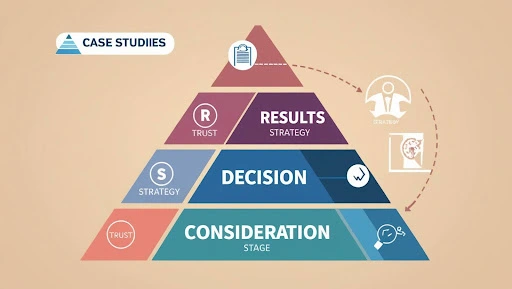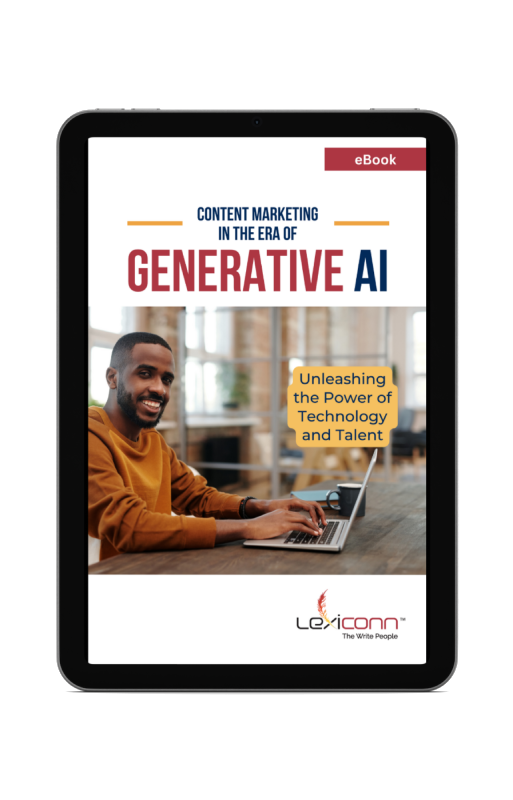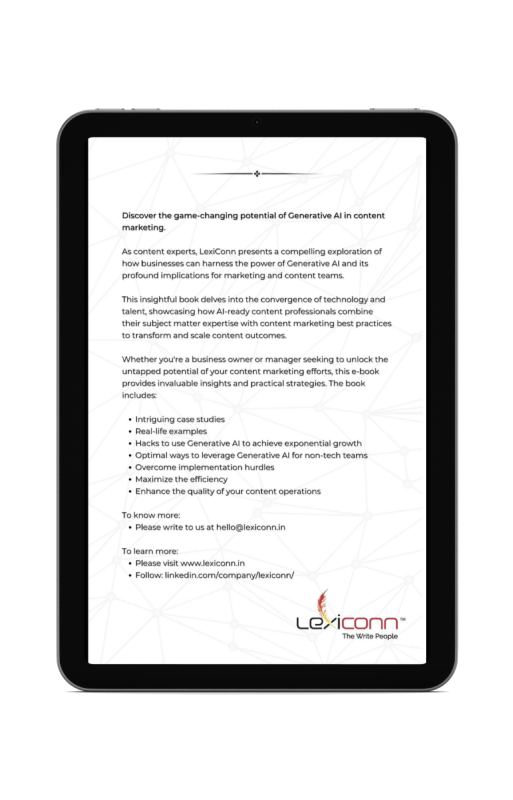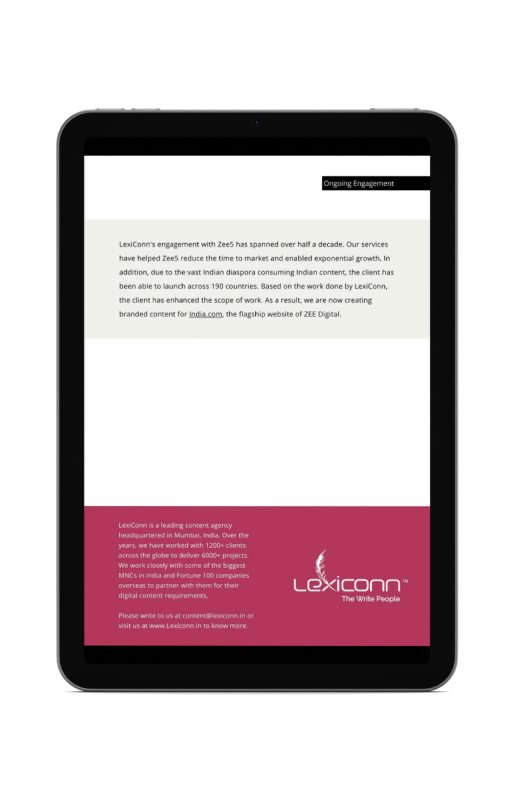
Case studies are among the most influential tools for business growth. They offer real-world proof of a company’s capabilities. An eMarketer survey found that 62.6% of respondents consider case studies effective for lead generation. While promotional materials highlight key offerings, case studies showcase actual results, helping companies build trust and credibility.
Case study writing is a powerful way for businesses to showcase measurable outcomes through data-driven results, client testimonials, and actionable insights, demonstrating the effectiveness of solutions. Case studies establish credibility with potential clients by emphasizing industry relevance and long-term success.
When done right, case study writing blends storytelling with data, transforming statistics into compelling narratives that make it easier for prospects to see how your solutions can work for them.
TL;DRCase studies are critical for business growth. They showcase real-world success and measurable outcomes. Case studies help build trust, credibility, and connection with potential clients through storytelling and data for a business.

Case study writing stands apart from other marketing tools due to its ability to blend data and storytelling effectively. It allows businesses to showcase their successes while resonating deeply with potential clients. Here’s how it works:

(Source: Leonardo AI | Case study writing pyramid)
Case study writing is essential for business growth, offering valuable advantages in building trust, enhancing marketing efforts, and accelerating the sales funnel. Let’s explore these benefits in more detail:
Check out how Lexiconn showcases the products and services of a business with the help of case studies.

Case study writing taps into psychological triggers that influence potential clients, making it a potent marketing tool. Its appeal lies in its ability to build trust, evoke emotions, and inspire action.

Case study writing stands out among marketing tools because of its ability to combine depth, detail, and personalization. While testimonials, white papers, and videos are also effective, case studies occupy a unique place in marketing strategies. Here’s a comparison to showcase their strengths and complementary roles:
| Case Studies | Testimonials |
|---|---|
| Case studies dive into the "how" and "why", presenting a complete narrative of a client’s journey, challenges, and outcomes. | These are concise customer quotes praising a product or service. They are powerful for building trust but lack detailed context. |
| Strengths: Case studies add credibility by providing evidence-backed narratives. | Strengths: Testimonials act as quick trust-building snippets. |
| Case Studies | White Papers |
|---|---|
| Case studies focus on real-world applications. They highlight personalized solutions tailored to a specific client. | These are in-depth technical documents designed to educate or advocate for a solution. They often focus on industry trends or complex solutions. |
| Strengths: Case studies are more relatable and accessible to a wider audience. | Strengths: White papers are often suited for highly technical readers. |
| Case Studies | Videos |
|---|---|
| Case studies provide greater detail and depth, allowing for an extensive exploration of the challenges, solutions, and results. | Video marketing captures attention quickly and appeals to visual learners, often offering an emotional impact in a short time. |
| Strengths: Case studies excel at providing in-depth insights, making them more suitable for decision-makers seeking detailed information. | Strengths: Videos are able to grab attention quickly. |
Holistic Approach: Case studies work best when integrated with other tools. For example:
Strategic Placement: Case studies can support the consideration and decision-making stages of the sales funnel, complementing tools like videos and white papers that target awareness or detailed education.

Case study writing is a versatile tool that drives business growth across various industries. According to a recent survey, 49% of SaaS marketers said that case studies are "very effective" at boosting sales. Businesses can effectively demonstrate their value and build trust with potential clients by tailoring success stories to industry-specific needs.
SaaS companies use case studies to highlight how their software improves productivity and delivers measurable ROI.
Example: Detailing how a CRM platform streamlined a sales team's workflow, resulting in a 50% increase in conversions.
Primary Benefit: Case studies emphasize tangible results like cost savings or efficiency improvements, directly appealing to target audiences.
2. Healthcare: Highlighting Patient Outcomes and InnovationHealthcare providers rely on case studies to demonstrate innovative treatments or technologies.
Example: A case study showing how a telemedicine app improved access to care, reducing consultation wait times by 30%.
Key Strength: This approach builds credibility by showcasing real-world applications of medical advancements.
3. Manufacturing: Solving Production Challenges with Specific SolutionsManufacturing companies use case studies to explain how they’ve addressed complex operational challenges.
Example: Highlighting a custom-built machine that cut downtime by 20% in a client's production line.
Impact: These stories reassure prospects by showing that specific pain points can be effectively resolved.
4. Marketing: Proving Campaign Successes Through Measurable DataMarketing agencies leverage case studies to showcase their creativity and results-driven approach.
Example: Describing how a social media campaign achieved 100,000 new followers and boosted engagement by 40%.
Advantage: Case studies provide concrete proof of success by focusing on metrics, reinforcing the agency's value.
Check out 11 professional case study examples from our experts at Lexiconn, along with content and design tips.

Neglecting case study writing can hinder business growth, making it harder to stand out in competitive markets and connect with potential clients.
Losing Competitive EdgeWithout case studies, businesses may struggle to differentiate themselves in crowded markets. Competitors leveraging well-crafted case studies gain a clear advantage by presenting real-world proof of their solutions. Struggling to Establish Credibility
A lack of tangible success stories can make your claims seem unproven. Case studies validate your expertise with measurable results, building the trust needed to attract new clients.
Missing Opportunities to Showcase ExpertiseCase studies highlight your ability to solve specific challenges, a key factor for decision-makers.
Without them, prospects may overlook your business in favor of competitors who effectively demonstrate their value.

To determine the effectiveness of case study writing, businesses can track key performance indicators that reveal their impact on business growth and marketing efforts.
1. Evaluating Engagement MetricsExample: A case study generating 100+ downloads or leads reflects strong engagement.
2. Tracking Sales Conversions and RetentionExample: Including a relevant case study in a sales pitch that leads to a deal closure.
Example: Positive client feedback tied to your case studies boosts your credibility.
Discover how Lexiconn helped leading BFSI players drive business growth through effective case study writing.

Case studies are powerful marketing tools—proven to drive business growth. They combine storytelling and data to build trust, establish credibility, and showcase measurable success. By weaving real-world examples into your marketing strategy, you can connect with prospects on a deeper level and demonstrate the tangible value of your offerings.
Businesses prioritizing case study writing gain a competitive edge by leveraging social proof, addressing pain points, and inspiring confidence in their solutions. Case studies remain an indispensable asset for growth, supporting various marketing efforts and accelerating sales.
Ready to craft impactful case studies? Our experts at Lexiconn can help you create compelling narratives that showcase your success. Lexiconn also offers a free 30-minute content consultation session to guide you in building a winning content strategy.



I have read and accept the Privacy Policy
Read More